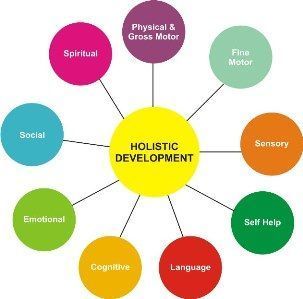In recent years, there has been a growing interest in alternative forms of education that veer away from traditional schooling methods. One such approach gaining traction is unschooling. Unschooling challenges the conventional notion of education by allowing children to learn through self-directed exploration and experience rather than following a structured curriculum. This article will delve into the benefits of unschooling, offering valuable insights for parents considering this unconventional educational path.
1. Tailored Learning Experience: Unschooling recognizes that each child has unique interests, learning styles, and abilities. By allowing children to pursue their passions and curiosities, unschooling provides them with a personalized learning experience. This individualized approach fosters a deeper understanding and retention of knowledge as children engage in subjects they are genuinely interested in.
2. Flexibility and Freedom: In an unschooling environment, there are no rigid schedules or fixed timetables dictating what needs to be learned at any given time. Instead, children have the freedom to explore subjects at their own pace without the pressure of meeting predetermined benchmarks or deadlines. This flexibility allows them to dive deeply into topics they find fascinating while also accommodating any additional interests or activities outside of academics.
3. Holistic Development: Traditional schooling often focuses solely on academic achievements while neglecting other important aspects of a child’s development—such as social skills, emotional intelligence, creativity, and critical thinking abilities. Unschooling takes a holistic approach by encouraging children to engage with real-world experiences that promote overall growth and well-being.
4. Self-Directed Learning: Unschoolers take charge of their own education by actively seeking out information that aligns with their interests and goals. This process cultivates essential skills like self-motivation, initiative-taking, problem-solving abilities, resourcefulness, and independence—all crucial traits for success in adulthood.
5. Real-World Application: Unschoolers frequently engage in hands-on learning experiences outside the confines of a classroom. Whether it be through internships, apprenticeships, volunteering, or pursuing personal projects, unschooling encourages children to apply their knowledge in real-world contexts. This practical application of learning fosters a deeper understanding of concepts and helps children see the relevance and utility of what they are studying.
6. Natural Love for Learning: Unschooling nurtures a genuine love for learning by keeping curiosity alive and allowing children to develop a natural intrinsic motivation towards education. Since they are free to pursue subjects that genuinely interest them, unschoolers often exhibit an eagerness to learn that may diminish under more traditional educational models.
7. Freedom from Standardized Testing: In many conventional school settings, standardized testing plays a significant role in evaluating students’ progress and determining their abilities. Unschooling offers liberation from the pressures associated with these exams and allows children the space to focus on their own growth rather than meeting arbitrary standards set by others.
8. Stronger Family Bonds: Unschooling often involves increased family involvement in a child’s education since parents act as facilitators rather than strict authority figures or teachers. This dynamic fosters stronger parent-child relationships as families spend more time together exploring interests and engaging in meaningful conversations about various topics.
9. Embracing Individuality: Unschooling celebrates individuality by recognizing that every child has unique strengths, talents, and passions that can flourish given the right environment. By embracing this diversity instead of expecting conformity within a uniform curriculum structure, unschooling empowers each child to develop their own identity while fostering self-esteem and confidence.
10.Socialization Opportunities: One common concern raised against unschooling is the limited socialization opportunities compared to traditional schooling environments. However, proponents argue that unschooled children have ample chances for social interaction through community-based activities such as clubs, sports teams, local organizations, homeschool co-ops, online communities, and other extracurricular activities. These interactions expose children to people of various ages, backgrounds, and perspectives, promoting social skills and the ability to navigate diverse social settings.
It is important to note that unschooling requires commitment and involvement from parents or guardians. They must actively support their child’s learning journey by providing resources, guidance, mentorship, and access to a wide range of experiences. Unschooling may not be suitable for every family or child; however, as an alternative educational approach, it offers numerous benefits that can lead to a well-rounded education and personal growth in individuals who thrive outside the confines of traditional schooling methods.

Leave a comment